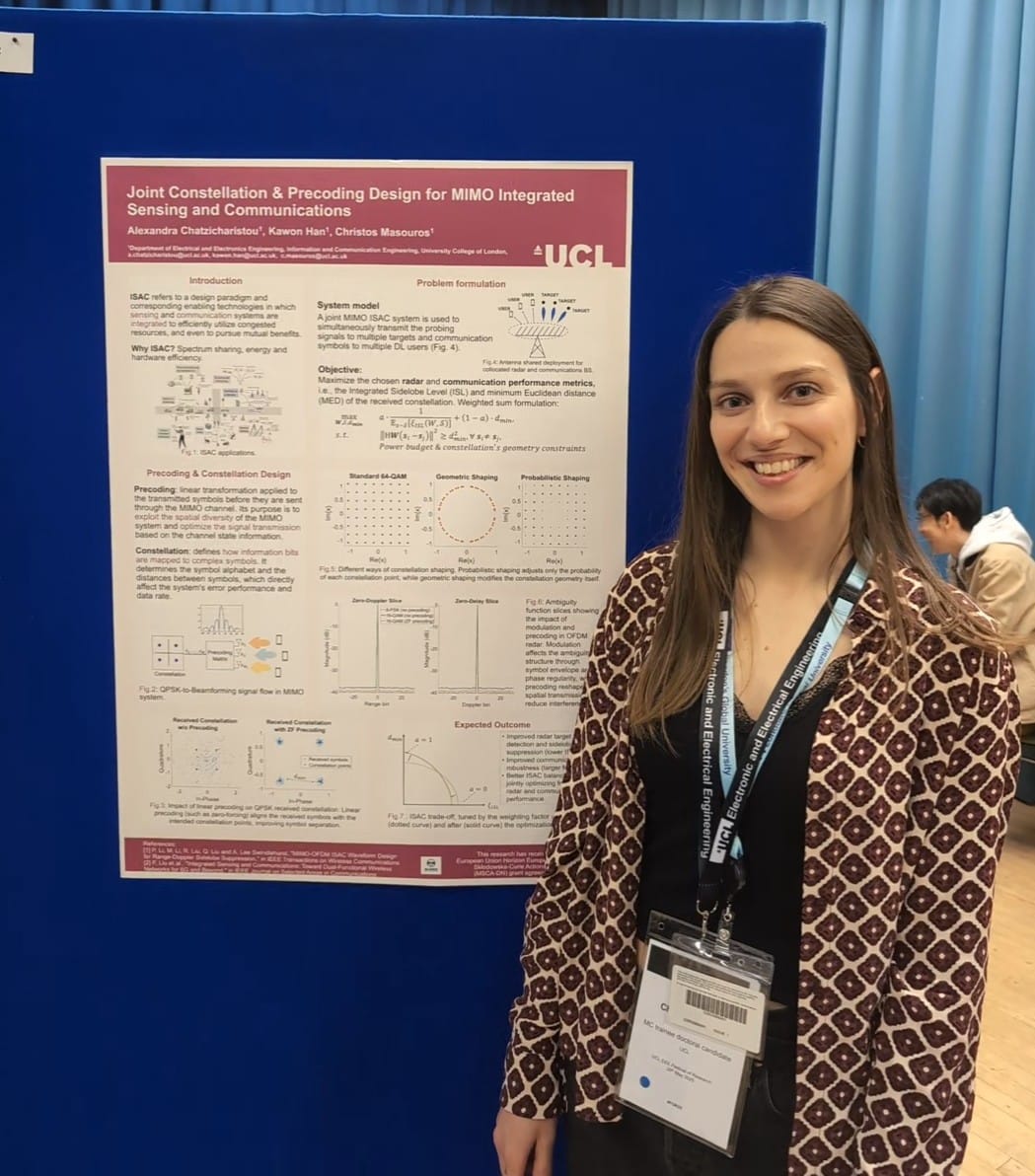ISLANDS Doctoral Candidate Alexandra Chatzicharistou, hosted at University College London (UCL), had the opportunity to present her research at two important academic and industry events organised by UCL in spring 2025.
On 20 May 2025, she took part in UCL’s EEE Festival of Research, an annual event showcasing the latest research activities from the Department of Electronic and Electrical Engineering. Her poster and presentation titled “Joint Design of Precoding and Geometric Constellation Shaping for MIMO-OFDM Integrated Sensing and Communications Systems” introduced a novel framework for balancing sensing and communication performance in future wireless systems.
Integrated Sensing and Communications (ISAC) technologies aim to combine radar sensing and data transmission within the same platform, but they often face trade-offs between detection accuracy and communication reliability. Alexandra’s work proposes a joint optimization method that minimizes the radar’s Integrated Sidelobe Level (ISL) while maximizing the minimum Euclidean distance (MED) of the received signal constellation—enhancing both radar detection and communication robustness. Her approach employs an efficient alternating optimization algorithm with a tunable weighting factor to dynamically manage this trade-off.
Supervised by Prof. Christos Masouros, Alexandra’s research attracted strong interest and valuable feedback from peers and faculty during the event.
Following this, the same poster was showcased again on 20 June 2025 during the BT Leaders Lab, an exclusive event hosted by UCL for manager-level staff from BT, one of the UK’s leading telecommunications companies. This second presentation provided Alexandra with a valuable opportunity to share her findings with an industry audience, engage in discussions about potential real-world applications, and strengthen links between academic research and the telecommunications sector.
These events represented an excellent platform for Alexandra to disseminate her research, gain feedback from diverse audiences, and increase the visibility of the ISLANDS project within both academic and professional contexts.





